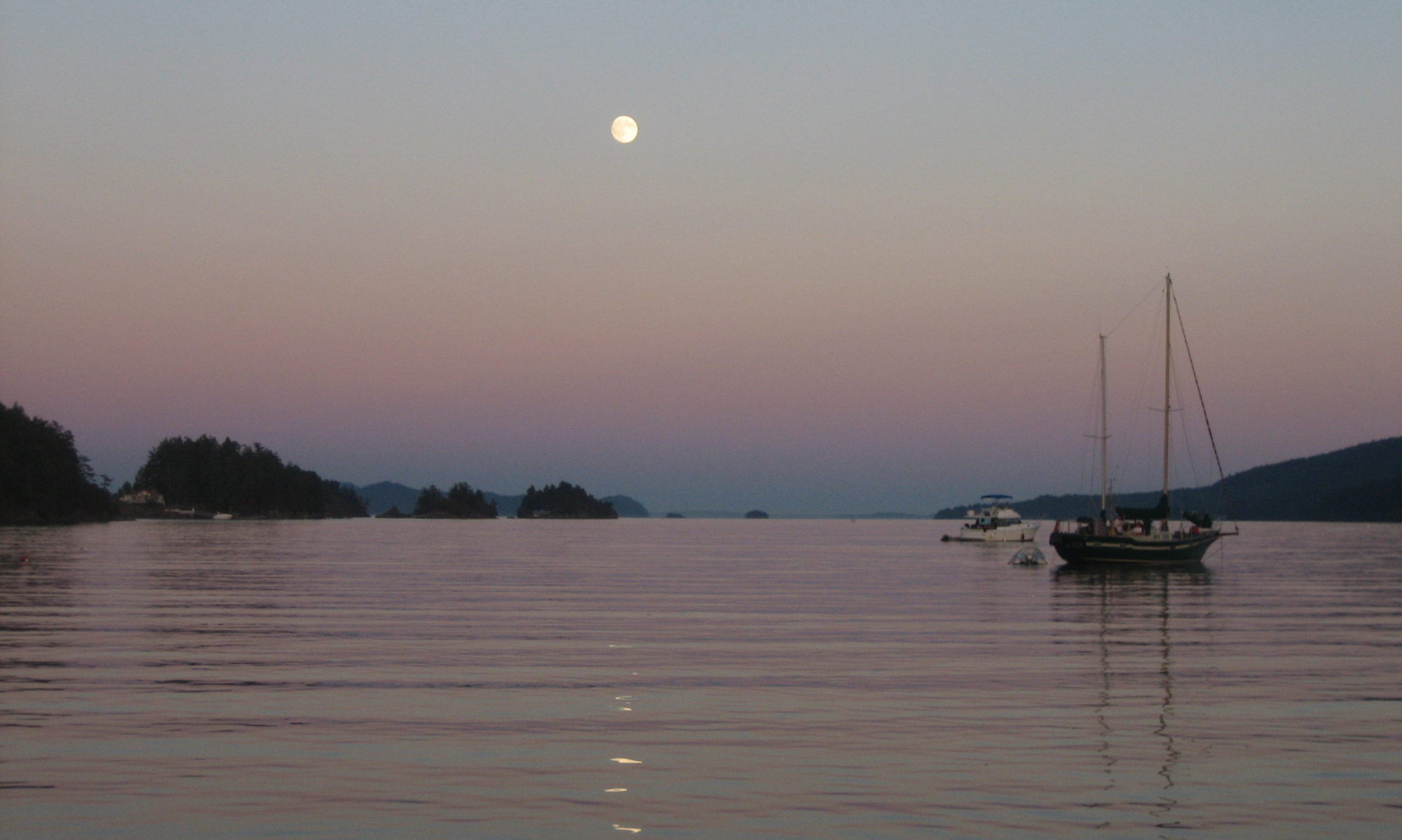One of the things I hope that I am increasingly getting used to is the need for the prudent mariner to occasionally make dramatic and substantial deviations from plans in order to accomodate changing conditions or reduce unforeseen risk. This is sometimes difficult to distinguish from the need to run calculated risks, which also seems to be part and parcel to the seagoing lifestyle. Some of the recent news coming out with respect to the decisions made by Captain Richard Phillips of the Maersk Alabama in light of warnings given to avoid the Somali coast by a wider margin just prior to the attack in which he was taken hostage highlight this aspect; crew blame him for avoiding the one and a half day detour, while other captains point out the trade-off between the detour and time and fuel costs. There is probably some rational, unemotional, economic “right” answer to what should have been done there but it was clearly a calculated risk.
The thing about calculated risks, as that incident aptly illustrates, is that sometimes the risk bites you. It seems to me that the trick is to keep calculating along the way, and to realize when the equation changes so that the risk you thought was reasonable becomes unreasonable, you can change course. Sometimes it’s a big course change. Such is our need with the mass of Arctic air moving into the region here colliding with our scheduled haul-out next week.
With everyone’s favorite northwest weather guru, Cliff Mass, predicting dire cold (particularly along the Strait of Juan de Fuca), we are throwing in the towel on the hull-painting haul-out we had scheduled for this week. Rain we had planned for, seasonal cold we could deal with, but the cold snap that is coming down is just going to be too much. The calculated risks have changed. With the average lows this time of year bumping along at a mild 40 degrees, we figured we could tarp up and keep the hull warm enough for the paint to dry, but with forecasts looking at mid-twenties overnight, and winds that promise to take a basic tarp-tent and shred it, we don’t foresee being able to rig anything that will allow us to paint and get back in the water in the time frame we had planned.
The forecast isn’t entirely out of the blue but I’ve held my course maybe a bit longer than I should have. When you get amped up and prepared for a big project, when you are feeling prepared and in control, it’s not easy to accept that conditions have changed, and you find that you want to roll the dice… hope for milder temperatures, imagine that you can rig a solution at the last moment. It’s easier, psychologically, to amend your best laid plans than to throw them all away.
But the risk versus reward doesn’t always pencil out once you lay the psychology aside. I have all the paint and materials ready, and they aren’t going anywhere… the money in those is invested, so to speak, and assuming I use them wisely it’s not a waste. But the instant the hoist starts going with the straps beneath the hull, I’ve also accrued the haul and yard costs. Those are only worthwhile if we can actually get the work done. If it doesn’t get done, we can still save the paint, but we have to pay for another haul-out again in the spring. If we actually try to paint and it turns into gelled muck on the hull, then not only do we have to pay for another haul-out, but for more materials. In short, the costs are high. Even a moderate chance of failure probably isn’t worth taking.
Of course, this isn’t one of those situations where life and limb are at risk; the dangers, such as they are, are entirely economic. But for exactly that reason it’s an easier case study than the more emotional situations mariners not infrequently find themselves in where they must weigh risk against reward. It’s instructive to me that I am feeling the same pressures with this as I sometimes do when deciding to make or abort a passage… an instinct to just get it over with, a feeling that putting it off is shirking, a hope that maybe the weather won’t be so bad after all. But just as with those passage-making decisions, none of those feelings really count… they’re just feelings. There is no real need to get it over with, there isn’t any duty being avoided, the weather will do what it wants regardless of our hopes or fears. Objectively, the numbers look better if we wait.
So wait we probably will. And I hope what I take away from it is a more dispassionate approach to other sailing decisions, an awareness that sometimes, the best laid plans must change.
